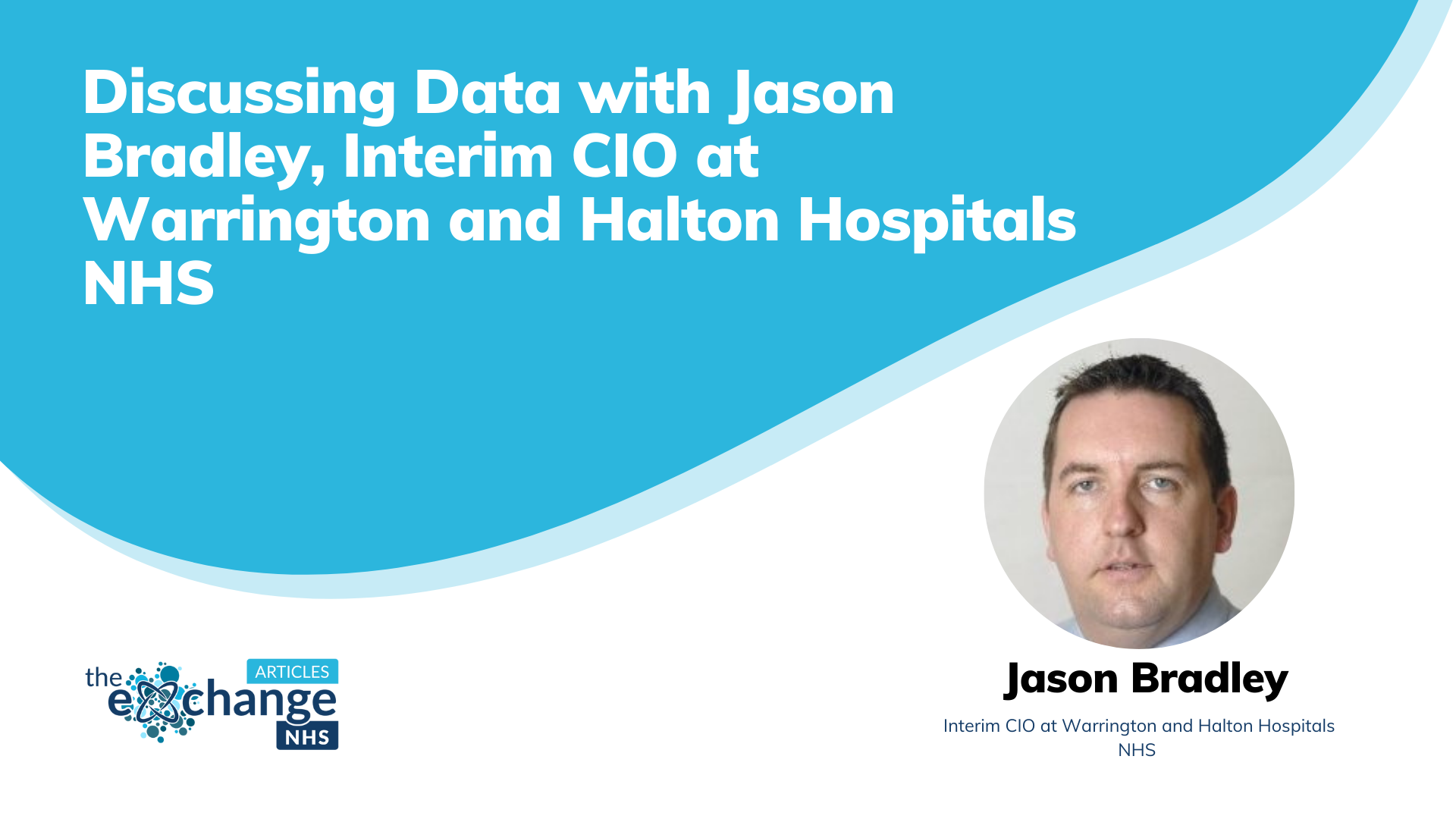
Jason Bradley is Interim CIO at Warrington and Halton Hospitals. He has witnessed the transformation of digital roles following COVID-19, as digital and informatics professionals became part of the operational running of the hospital. As things changed quickly, reliance on data was higher than ever to help operational leads understand the challenges and decide on next steps.
“I think in part driven by the immediacy of the pressures and moving into some unknown areas, these were new challenges for the NHS.”
The pandemic showed how important data can be to response planning, and helped to highlight its benefits to those in leadership roles who may not have had as much exposure to it previously. On the other side, there was a lot of work behind the scenes to make sure that the data was quality, meaningful and timely. These two elements together have ensured that data work within the NHS is evolving faster than ever.
“It was work behind the scenes that actually saw those operational, clinical and analytical teams, working so closely together to really understand where the data came from, what it meant, and how you could develop that further.”
With an organisation the size of the NHS collecting a vast array of data daily, the concern is always there that there is too much data for it to be meaningful. For Jason, the answer to these questions is never black and white. In some areas there is limited data where it is easy to go through but not necessarily meaningful. And on the other side, there are areas where there is much more depth making it difficult to use. However, the key on both sides is working to identify the areas of data that are meaningful, quality and timely.
Lessons were learned in this respect at the beginning of the pandemic. For example, levels of oxygen were not reported because there was always a ready supply. This quickly changed and now oxygen supply will be something that is monitored as a data point moving forward.
“Getting into the car dashboard analogy of, have you got everything in front of you on the dashboard that tells you, you are driving safely and securely? And you’re going to get through this journey? We realised there were just some holes, we didn’t have the data we really needed.”
The value of data within the NHS will come from this ability to learn lessons, and that is something that needs work to improve the response.
“We need to capture all of this information, routinely, in the work we do every day. Then we need the tools, such as artificial intelligence, to be able to layer over the top of that. So that as things change, we have those tools available to us to say, Okay, well, we didn’t look at oxygen data yesterday, we need to look at it today. Plug that into the systems we have and get the systems to tell us what the trends are, and what we have available.”
What skills do you need to be good at data? For Jason, a range of technical and softer skills are required. On the technical side, understanding where data is coming from, how it is stored and how it is processed is extremely important. As well as this, people with softer skills are needed to engage with operational and clinical staff.
“You wouldn’t necessarily have a meeting with a team and put one analytical person in that room, you might need three or four because each one would be bringing a different set of skills with them.”
The pandemic saw many people offering their skills to the NHS and much more collaboration between hospital teams, local authority teams and University teams. This brought different aspects to the conversation which was extremely beneficial, and something that Jason hopes will continue in the future.
“We need to broaden that out to get the best of what goes on outside of the NHS and plug that in with the knowledge and skills we already have in the NHS.”
Looking to the future, Jason’s key learnings around data from the past 18 months centre around operational management and skill development. For operational management, it is valuable to have data people around the table and at the heart of the management process to develop processes and responses based on that data.
Equally important is developing the skills of those who work with data.
“Let’s keep developing the skills of the technical analysts and developers and broaden them out. So they’re not just the doing the back office technical work, but we’ve developed those skills so they feel comfortable with being there at the frontline.”